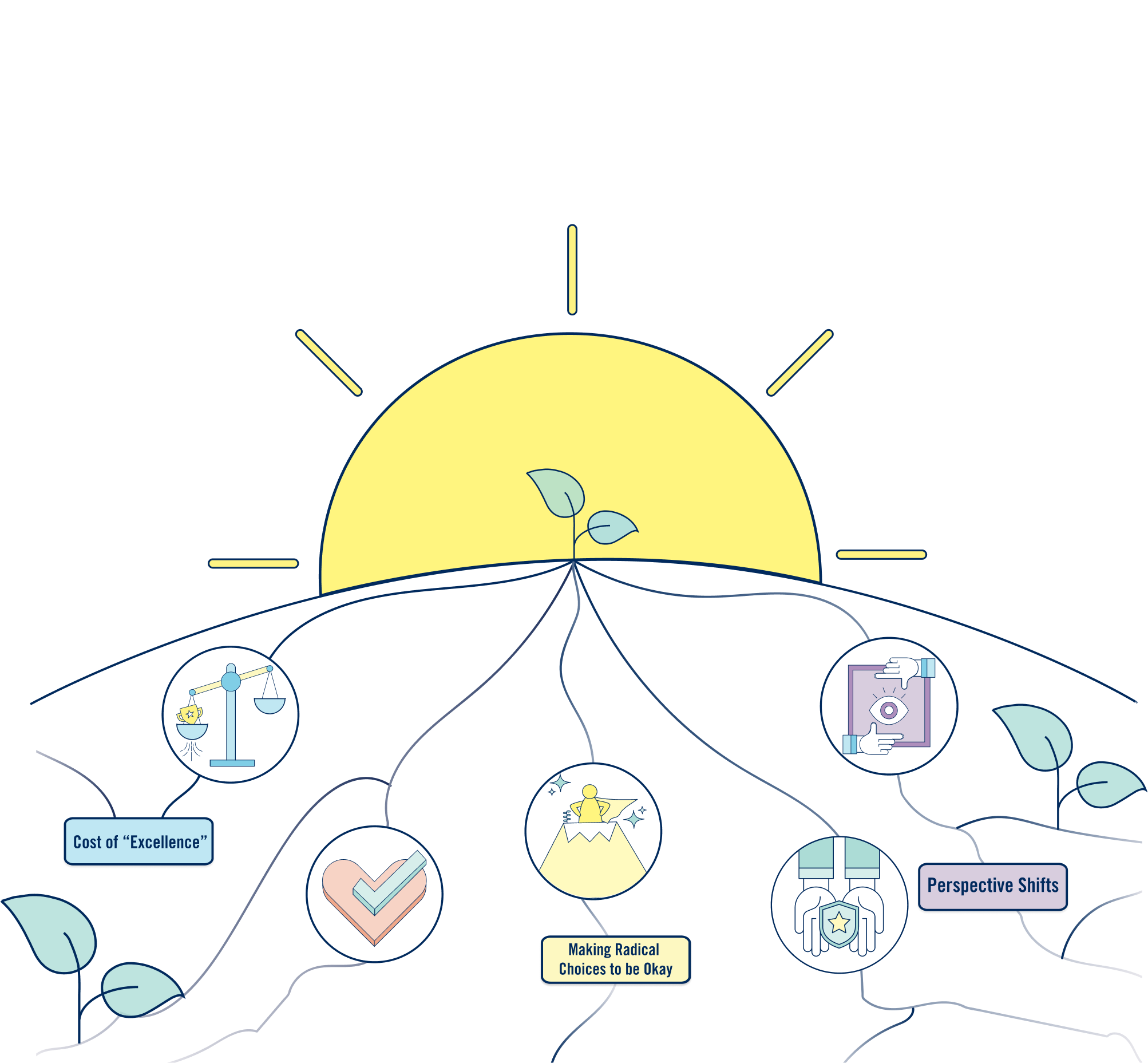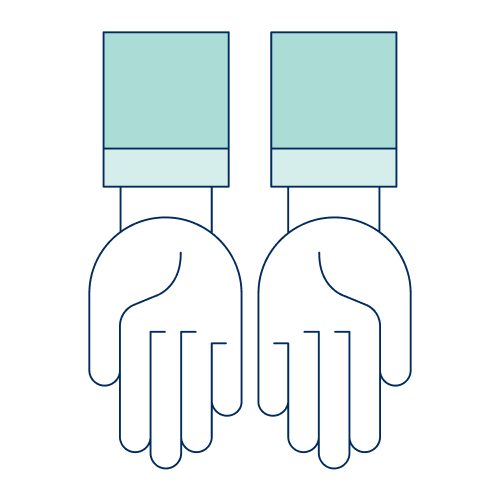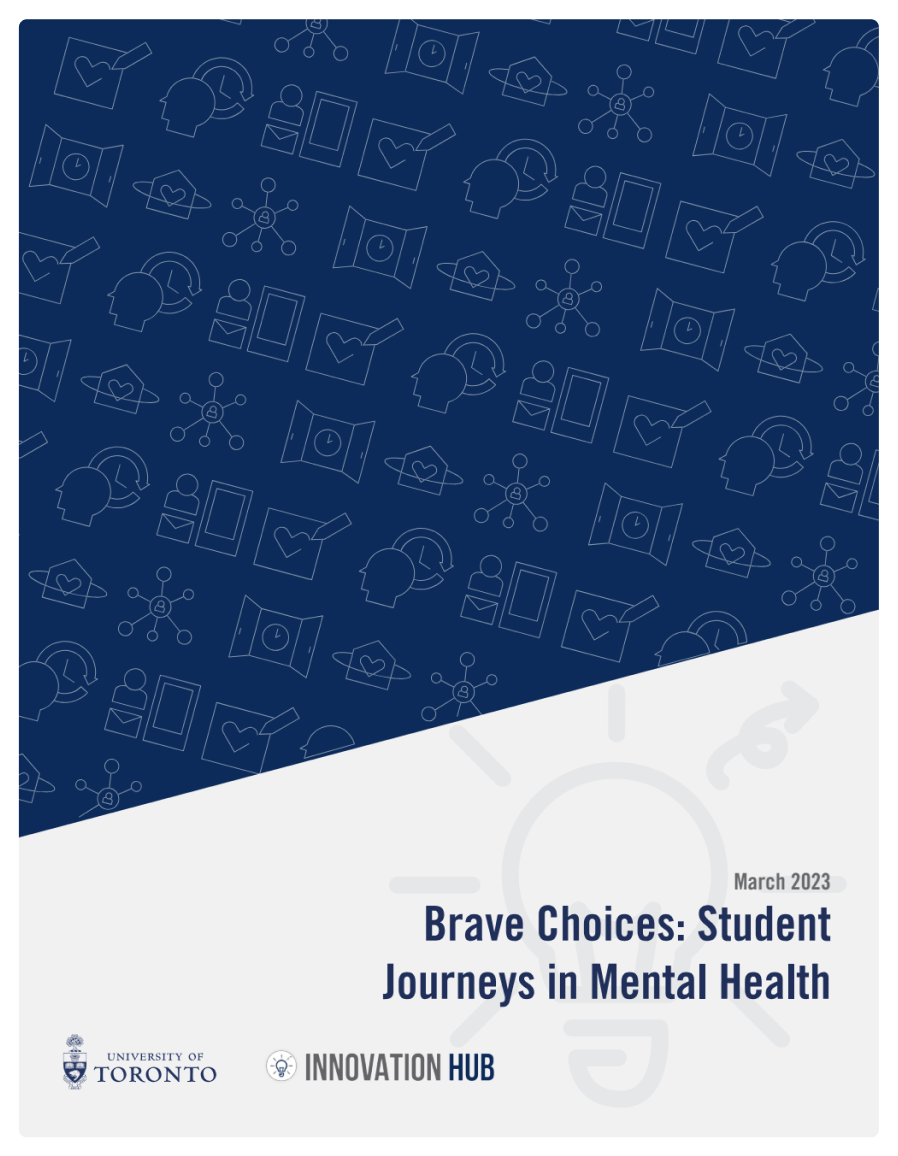Health & Wellness: Student Journeys in Mental Health
The Innovation Hub has partnered with Health & Wellness (H&W) since 2021 to discover how students take care of their mental health. Projects have included H&W reception services, how students balance mental health with other priorities, and student needs in mental health support.
In 2022 - 2023, we researched factors which influence how students balance mental health with other aspects of their lives. We hope that the insights from this research will help the Health Promotions team co-create future program and service offerings.
Fall/Winter 2022 - 2023
How do students take care of their mental health?
The Health Promotion Programs team leads all of the non-clinical mental health supports for students offered through Health & Wellness at the St. George Campus of the University of Toronto. As a continuation of an existing partnership, the Health Promotions team has enlisted the Innovation Hub to engage in design research with students focusing on one key question: how do students support their mental health?

OUR APPROACH
In September 2022, we initiated a widespread call for participants for an event entitled “Tell us how you Take Care of your Mental Health” across various communications channels. We then hosted four open-dialogue feedback sessions in October using empathetic and story-based methods for data collection. A total of 32 students attended these sessions, and an additional 2 students participated using an alternative format of submitting responses via a written journal for accessibility purposes.
For the second phase of the project, we hosted co-creation sessions to share key findings from the January 2023 report and hear students’ thoughts and reactions. We also engaged in idea generation activities to hear students’ ideas for non-clinical programs and resources that can be implemented to take care of mental health. We spoke to 24 students across 2 co-creation sessions. Insights from the co-creation sessions and ideas generated by students are contained in the Co-Creation at Health & Wellness and Design Principles section of the report.
KEY FINDINGS
When students make brave choices, they build lifelong resilience
We found that students face significant challenges with transitioning into university and navigating the academic rigour required to succeed. We noticed that students who prioritize their mental health find the courage to take radical action that defies the status quo of pushing harder to achieve their academic goals. When students take these brave steps, they experience perspective shifts, empowering them to create more balance between academics and other aspects of their life. These perspective shifts enable students to experience positive mental health while facing the same academic rigour. The data and insights discussed in this report will help inform Health and Wellness, as well as other supports and services at U of T, on the design of non-clinical resources and activities that could be implemented for U of T students to help individuals and diverse populations with different mental health challenges.
Five themes from the findings:


The Cost of “Excellence”: Students generally place a higher value on academics, want to feel capable, and value receiving recognition from their academics.

Permission to Take Care of Myself: need to feel their basic needs met, invited to take care of their mental health, and see others prioritize their well-being.

Making Radial Choices to Be Okay: students require courage to deviate from usual priorities and find meaning beyond academics.

Trustworthy Support: students want to be heard, feel safe, and relate to peers who have faced similar challenges during vulnerable times.

Perspective Shifts: students need autonomy over their time, confidence to navigate challenges, and have a holistic understanding of mental health.
